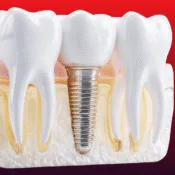🦷🔍 What Are the Signs of Gum Disease?
✅ Introduction
Gum disease (periodontal disease) is more common than you might think — and it doesn’t always cause pain at first. In fact, millions of people have gum disease and don’t even know it. Catching gum disease early is key to protecting your teeth and avoiding tooth loss.
Here are the most common signs to watch for.
⚡ Common Signs of Gum Disease
1️⃣ Red, Swollen, or Tender Gums
Healthy gums should be pale pink and firm. If your gums look puffy, dark red, or feel sore, it could be a sign of inflammation (gingivitis).
2️⃣ Bleeding Gums
Do you see blood when you brush or floss? Occasional light bleeding can happen, but frequent bleeding is a red flag.
3️⃣ Bad Breath (Halitosis)
Persistent bad breath that doesn’t go away even after brushing may mean bacteria are trapped under your gums.
4️⃣ Receding Gums
If your teeth look longer than before or you see more of the tooth root, your gums may be pulling back — a sign of gum disease.
5️⃣ Loose or Shifting Teeth
Advanced gum disease (periodontitis) can damage the bone that holds your teeth in place, making them loose or causing bite changes.
6️⃣ Pus Between Teeth and Gums
Pus is a sign of infection. If you notice pus or sores around your gums, see a dentist immediately.
🗓️ Why Early Detection Matters
If caught early, gum disease (gingivitis) is reversible with good brushing, flossing, and professional cleanings. Left untreated, it can progress to periodontitis, which may lead to tooth loss and even affect your overall health.
💡 Protect Your Gums: Easy Tips
✅ Brush twice a day for 2 minutes
✅ Floss daily — don’t skip!
✅ See your dentist for cleanings every 6 months
✅ Avoid smoking — it increases gum disease risk
❓ FAQs: Signs of Gum Disease
Q1: What does gum disease feel like?
A: Early gum disease often feels painless but may cause swelling, tenderness, or bleeding.
Q2: Can gum disease cause bad breath?
A: Yes! Bacteria trapped below the gums can lead to chronic bad breath.
Q3: Are bleeding gums normal?
A: Occasional bleeding can happen, but regular bleeding is a warning sign.
Q4: Can gums grow back once they recede?
A: No — but treatments can stop further recession and strengthen your gums.
Q5: What happens if gum disease is left untreated?
A: It can progress to periodontitis, leading to tooth loss and bone damage.
✨ Key Takeaway
Gum disease starts small but can have a big impact on your smile and health. Watch for these early signs and keep up with good oral hygiene and dental visits to protect your gums for life!
Recent Posts
All Categories
- Anesthesia
- Cosmetic Dentistry
- Endodontics
- Health, Wellness and Ergonomics
- Hygiene
- Imaging, CBCT, and Radiography
- Implant Dentistry
- Laser Dentistry
- Marketing
- Oral Pathology, Pharmacology, and Cariology
- Oral Surgery
- Orthodontics
- Paradental and Infection Control
- Prosthodontics
- Public Health
- Research
- Restorative Dentistry
- TMJ and Occlusion




